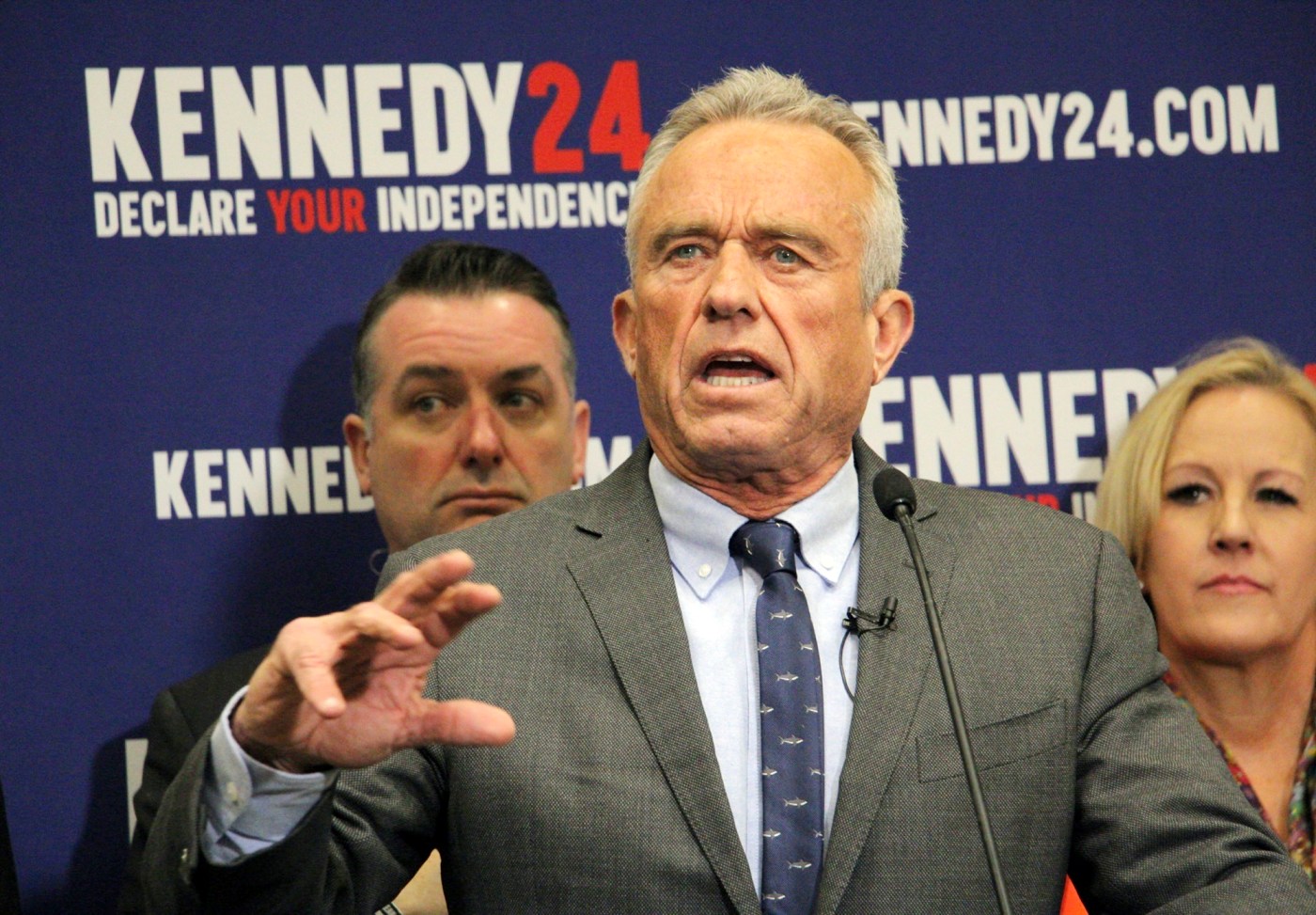
RFK Jr. calls Maine’s top election official ‘Democrat partisan hack’ in lawsuit over ballot access
Robert F. Kennedy Jr. has sued Maine Secretary of State Shenna Bellows after election officials barred the independent presidential candidate from collecting ballot access signatures inside polling places during the March 5 presidential primary.
The lawsuit, filed in federal court in Bangor, Maine Wednesday, slams Bellows as a “Democrat partisan hack” who is “disinterested in the rule of law, basic constitutional protections, in favor of peacocking around as the lap dog of an incompetent, desperate, senile president.”
“(The president’s) political team has apparently issued (Bellows) instructions from the White House to clear Maine’s 2024 general election ballot from any opposition that might threaten to deprive Joe Biden of Maine’s four electoral college votes – Constitution be damned,” the lawsuit said.
Independent and third-party candidates are required to collect 4,000 signatures from registered voters by the start of August in order to have their name placed on Maine’s 2024 general election ballot.
The candidates can only submit 5,000 for review to election officials and Kennedy argued his campaign needs to collect as many signatures as possible to make sure 4,000 of the 5,000 pass muster.
Lawyers for Kennedy said town clerks had previously told the campaign they would be allowed to collect signatures inside polling places on March 5, a decision the candidate alleged was reversed earlier this month “as it somehow threatened (without explanation, as to how) to unduly influence the voters.”
“It is beyond the laugh test to argue that the collection of ballot access petition signatures for independent and third-party presidential electors can in any way be properly interpreted as either influencing or attempting to influence the casting of votes for delegates to the national political party nominating conventions,” the lawsuit said.
But Bellows said Maine law is “very clear” that within a voting place itself, a person cannot influence another person’s decision regarding a candidate for office or a question that is on the ballot for election that day.
That is why no presidential campaign can collect signatures on presidential primary day, Bellows said. But if a candidate’s office is not on the ballot, they “can absolutely collect signatures,” she said.
“There’s a statewide election in June. Certainly Mr. Kennedy can collect signatures then. It’s important to recognize that it’s when a candidate’s office is on the ballot, that they cannot collect signatures because for good reason, Maine law prohibits political activities that influence a voter,” Bellows said in a statement.
Kennedy’s campaign lawyers argued he should be allowed to collect signatures inside polling places because his name will not appear on the Republican or Democratic primary ballots. He asked a federal judge to reverse Bellows’ decision and declare it unconstitutional.
The lawsuit said Bellows allowed Republican and Democratic presidential candidates to collect ballot access signatures inside polling locations during the November 2023 statewide election, a contest that did not feature presidential candidates on the ballot.
Representatives of Democratic presidential candidate Dean Phillips and Republican candidates Doug Burgum, Vivek Ramaswamy, and Ryan Binkley were allowed to collect signatures inside polling locations during the November 2023 general election, the lawsuit said.
Maine, Kennedy’s lawyers argued, “has historically permitted” prospective candidates to collect signatures inside polling locations on tables provided by the state “as a matter of course during both the primary and general election.”
“In 2020, the Green Party presidential candidate was permitted to collect petition signatures inside polling locations on primary election day 2020, for their presidential candidate, on tables provided by the state, and reports collecting about 9,000 signatures on that single day,” Kennedy’s lawyers said in the lawsuit.
Lawyers for Kennedy’s campaign argued the candidate’s team should also be allowed to collect ballot access signatures inside polling locations during the March 5 primary “because everyone exiting polling locations during a primary election are registered voters qualified to sign (Kennedy Jr.’s) ballot access petition.”
Kennedy’s lawyers said his campaign stands to save about $22,500 if they are allowed to collect signatures inside polling places on presidential primary day in March because professional signature gathers charge about half as much.


